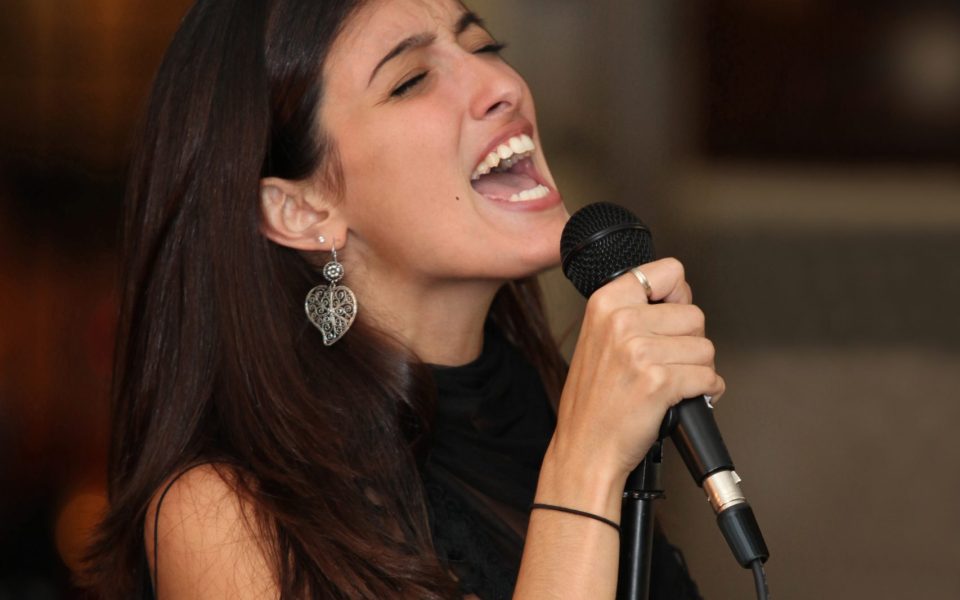Can’t miss
Guitar Traditions (noon, Lawn Stage)
One of the revelations of the folk festival is the periodic sessions convening musicians from different cultural traditions. The mutual respect that these master musicians hold for one another is evident, and the commonalities and divergences in technique and style are fascinating. The Guitar Traditions session convenes “master of the Telecaster” Bill Kirchen with Mississippi Delta bluesman James “Super Chikan” Johnson; Simon Beaudry of Le Vent du Nord; Traphill, NC bluegrass flat-picker Presley Barker and Steve Lewis, a veteran guitar player in the Blue Ridge tradition of western North Carolina and Virginia. It will be especially interesting to see where Kirchen, who developed a supercharged rockabilly style, overlaps with Super Chikan, a blues traditionalist who makes his own instruments, and how the Scots-Irish influence in Barker and Lewis’ Appalachian music compares to the French-Canadian strain of Beaudry’s music.
Other acts
Samba Mapangala & Orchestra Virunga (Dance Pavilion at 3:15 p.m. and CityStage at 5:30 p.m.)
It may seem counterintuitive, but the Congolese style developed in the late 1930s and early ’40s that later came to be known as soukous is heavily influenced by Afro-Cuban music. Few exemplify the haunting vocals and irresistible dance rhythms that characterize the music better than Samba Mapangala. Known as “East Africa’s most beloved singer,” Mapangala was born in Zaire and relocated to Kenya in 1977, but has lived in the Maryland suburbs of Washington, DC for the past two decades.
Nathalie Pires (Wrangler Stage, 5:30 p.m.)
Few styles are more emotionally compelling than fado, a Portuguese music somewhat akin to the tango that combines intricate guitar playing with soaring vocals. As described on the festival website, “the emotional core of fado is saudade, an indefinable yearning or nostalgia for love, times past, or a lost home.” One of the leading new voices of fado, Pires, is not from Lisbon, but rather from the Portuguese-American community in Perth Amboy, NJ.
Wild card
Chico Simões (McDonald’s Family Stage, 12:45 p.m. and 3:15 p.m.)
There’s a thin line between “can’t miss” and “wild card” at the folk festival, but since Brazilian puppeteer Chico Simões stages his show twice while Guitar Traditions is one-time affair, puppetry takes the wild card. The face-painting of both the performers and puppets in mamulengo can bring to mind the unfortunate American tradition of blackface, but that’s probably a glitch of translation considering Brazil’s more racially varied development. A form of social commentary akin to English Punch and Judy shows that is conveyed in a 16th Century language of gibberish designed to communicate across cultures, mamulengo seems like an essential experience.
Suggested itinerary
Start with Guitar Traditions at the Lawn Stage at noon. If you haven’t caught DJ Grandmaster Flash yet, you definitely want to see him at the Dance Pavilion at 2 p.m. Stay there for Sampa Mapangala at 3:15 p.m. (Alternately, you could catch Chico Simões’ puppetry act at McDonald’s Family Stage; Mapangala and Simões perform multiple sets at the festival, so adjust accordingly.) The African Diaspora: Roots & Rhythms session at 4 p.m. at LeBauer Park Stage is definitely worth checking out. Participants include Dr. Michael White, leader of the Original Liberty Jazz Band; kosher gospel artist Joshua Nelson; members of Grupo Rebolú; Brazilian-American tap dancer Leonardo Sandoval and Langston Longley of Bahamas Junkanoo Revue. Awalom Gebremariam, an Eritrean singer and lyre player from Durham, performs only one time at the festival, so you’ll want to be at the North Carolina Traditions stage at 5 p.m. Consider leaving Gebramariam’s set early to close out the day with Super Chikan & the Fighting Cocks at the Dance Pavilion at 5:45 p.m.
Join the First Amendment Society, a membership that goes directly to funding TCB‘s newsroom.
We believe that reporting can save the world.
The TCB First Amendment Society recognizes the vital role of a free, unfettered press with a bundling of local experiences designed to build community, and unique engagements with our newsroom that will help you understand, and shape, local journalism’s critical role in uplifting the people in our cities.
All revenue goes directly into the newsroom as reporters’ salaries and freelance commissions.


Leave a Reply